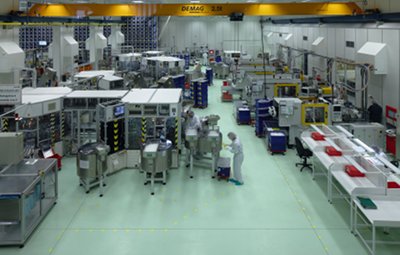Everyone hates plastic, or so it seems. Several months ago, Frontline, PBS’s investigative news program, added to the fire when it ran Plastic Wars. NPR followed up several months later with an abbreviated version of that show. Both depict plastic recycling as a con, a cynical attempt by the oil industry to convince the public that plastic products can be recycled when, in fact, they can’t.
The show is an indictment of the plastic industry, and, by extension, plastic recycling. It also has inaccuracies, is misleading and makes virtually no attempt to acknowledge America’s plastic recycling industry.
Everyone hates plastic, or so it seems. Several months ago, Frontline, PBS’s investigative news program, added to the fire when it ran Plastic Wars. NPR followed up several months later with an abbreviated version of that show. Both depict plastic recycling as a con, a cynical attempt by the oil industry to convince the public that plastic products can be recycled when, in fact, they can’t.
The show is an indictment of the plastic industry, and, by extension, plastic recycling. It also has inaccuracies, is misleading and makes virtually no attempt to acknowledge America’s plastic recycling industry.
I suppose this should be no surprise. Investigative reporters, by nature, seek out the bad. St. Peter might not be able to survive a Frontlines investigation.
But let’s give the show some credit. The reporter spends six seconds (in a 54-minute broadcast) acknowledging that “some plastics like soda bottles and milk jugs are easy to recycle”. She also visits a successful New Jersey facility that processes plastics for recycling but then jumps to an investigation of fraudulent plastics recycling in Indonesia. Her photos of plastics shipped from America for recycling that are instead abandoned in a dump are depressing.
As an example of our failure to recycle plastic packages, the reporter visits the produce section of a Portland, Oregon, grocery store. She is accompanied by one of that state’s recycling experts. He looks at a lettuce container and declares it cannot be recycled in Oregon, neither can a blueberry container. Both are in PET clamshells which are commonly used for fruit and vegetables. He then states that if they can’t be recycled in Oregon, they are not likely to be recycled anywhere else in America.
However, if the reporter, instead of flying off to Oregon, had simply taken the Metro subway from PBS headquarters to a grocery store in Silver Spring, Maryland, the answer would be yes, they can be recycled. Not only can the clamshells be recycled in Silver Spring, they can be recycled in many U.S. communities. Not, by any means, as easily as PET beverage bottles, but they can be recycled..
Part of the problem with our anti-plastic fervor, is that we tend to conflate plastic packaging with all plastic products. This is an understandable error. According to EPA’s just-released 2018 waste and recycling data, packaging is 41 percent of plastic products generated. The bulk of plastics are durable products such as the plastics used in furniture and computers along with the much smaller amount of “non-durables” such as single use food utensils. Plastic Wars lived up to this conflation by focusing on plastic packaging.
According to EPA, plastics had an 8.5 percent recycling rate in 2018. That’s half the aluminum recycling rate. For both materials, packaging supplies the bulk of their recycling. But who’s screaming at the aluminum industry?
The latest salvo in the plastic wars was fired off by USPIRG, which issued a press release demanding that plastic packaging be eliminated. Unfortunately, they didn’t say what material should replace plastic.
Resource: https://www.pbs.org/wgbh/frontline/film/plastic-wars/







